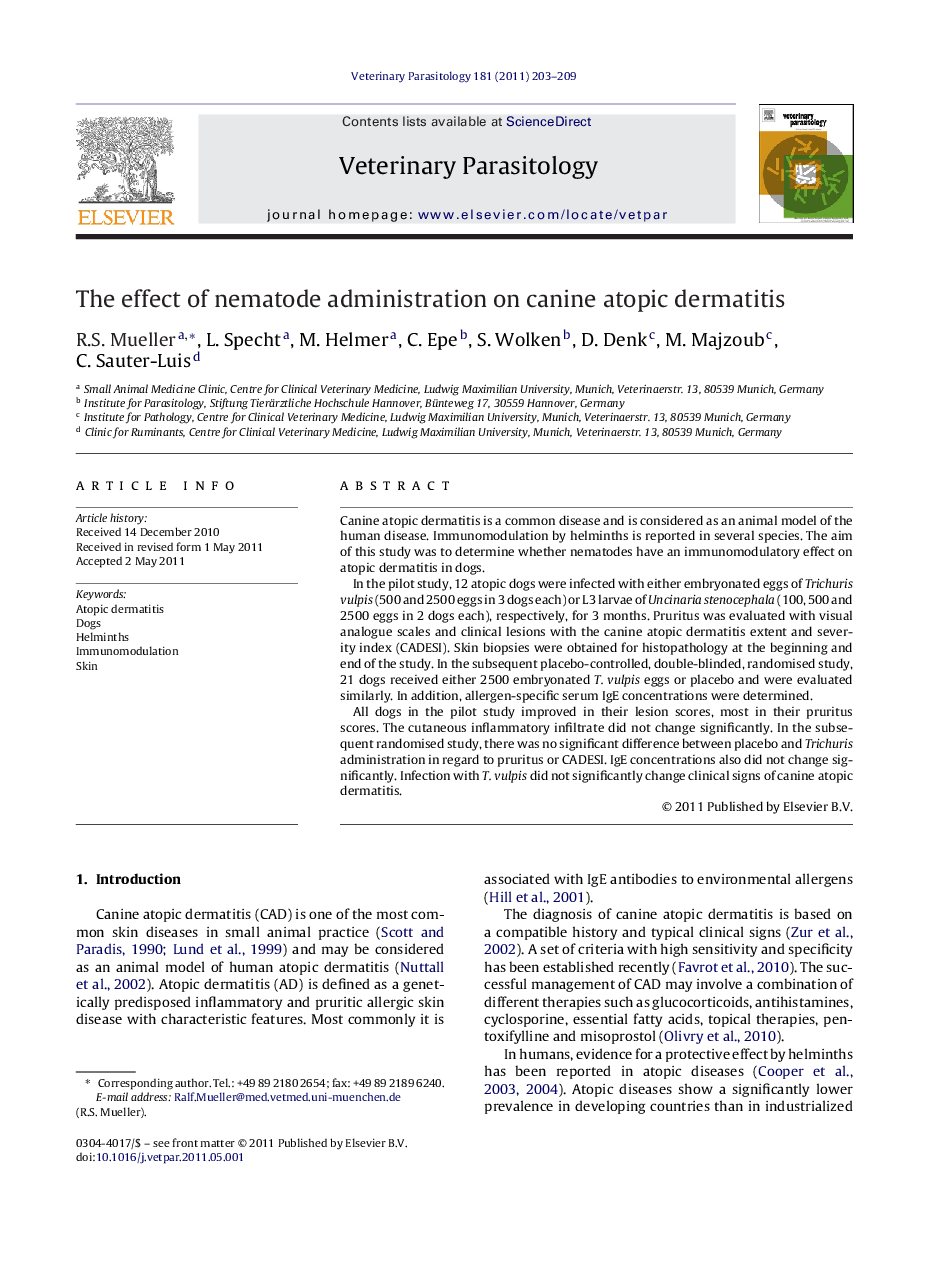| Article ID | Journal | Published Year | Pages | File Type |
|---|---|---|---|---|
| 5805450 | Veterinary Parasitology | 2011 | 7 Pages |
Canine atopic dermatitis is a common disease and is considered as an animal model of the human disease. Immunomodulation by helminths is reported in several species. The aim of this study was to determine whether nematodes have an immunomodulatory effect on atopic dermatitis in dogs.In the pilot study, 12 atopic dogs were infected with either embryonated eggs of Trichuris vulpis (500 and 2500 eggs in 3 dogs each) or L3 larvae of Uncinaria stenocephala (100, 500 and 2500 eggs in 2 dogs each), respectively, for 3 months. Pruritus was evaluated with visual analogue scales and clinical lesions with the canine atopic dermatitis extent and severity index (CADESI). Skin biopsies were obtained for histopathology at the beginning and end of the study. In the subsequent placebo-controlled, double-blinded, randomised study, 21 dogs received either 2500 embryonated T. vulpis eggs or placebo and were evaluated similarly. In addition, allergen-specific serum IgE concentrations were determined.All dogs in the pilot study improved in their lesion scores, most in their pruritus scores. The cutaneous inflammatory infiltrate did not change significantly. In the subsequent randomised study, there was no significant difference between placebo and Trichuris administration in regard to pruritus or CADESI. IgE concentrations also did not change significantly. Infection with T. vulpis did not significantly change clinical signs of canine atopic dermatitis.
